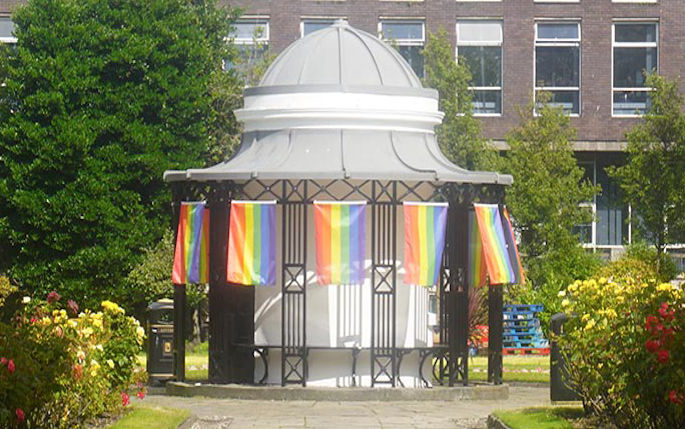The Future of LGBT+ Healthcare

Representatives from a range of medical societies came together earlier this year to run a collaborative event that continued important conversations around the topic of LGBT+ healthcare within the student doctor community. Here they share more about the LGBT+ issues closest to their hearts.
Emma Wilson, President of Liverpool’s GP Society: General practice is the primary area of patient contact in the NHS, with over 300 million patient consultations taking place each year. It’s positive that the culture in general practice is becoming increasingly accepting. LGBT+ advocates have been introduced within the Royal College of General Practitioners (RCGP), and GPs can now have a specialist interest in gender-affirmative healthcare. The RCGP has also produced learning resources specific to LGBT healthcare, including the online LGBT+ Health Hub and event programme.
Maddie Upham, Media and Communications Rep for MADsoc (Medics Against Discrimination): We support a gender and sexuality inclusive approach to sexual health. If you look at cervical screening, there is a lower uptake amongst lesbian, gay and bisexual women - 17.8% have never had a smear test. Some of this is due to misinformation and a lack of patient understanding, but a deeper understanding from doctors would help improve matters. Another important issue is improving access to gender identity clinics, where the average wait time for a first appointment is 18 months.
Rebecca Nagar, President of SNOGS (Student Neonatal Obstetrics and Gynaecology Society): Fertility is obviously a big part of O&G and a very exciting sub-speciality when it comes to LGBT+ healthcare as it provides the opportunity for people to have a family of their own, which they may have once not thought possible. I'm really happy that learning about the specific needs of LGBT+ patients and how this relates to O&G as a speciality is now part of the Royal College of Obstetricians and Gynaecologists (RCOG) trainee curriculum.
Alice Bradfield, President of HIVE (HIV Education): The rules surrounding blood donations have recently become much more gender neutral and inclusive, meaning all donors now have the same health check prior to donation, regardless of gender or sexuality. There is progress being made in improving the lives of those living with HIV. Pre-exposure prophylaxis (PrEP) was recently made freely available on the NHS, allowing HIV-positive people to continue a healthy sexual relationship with their HIV-negative partners. The recent U=U (undetectable = untransmittable) campaign explains how HIV positive people with an undetectable viral load cannot pass the virus on to others. This just reiterates how far HIV treatment has come and how low the risk of transmission is with effective treatment.
What are your wishes for the future in the care and treatment of LGBT+ patients?
Alice: We would like to see people being taught about safe sex in a way that is inclusive of all orientations and gender identities. Ultimately, we hope that with better health education there will be an end to new HIV diagnoses.
Maddie: Often LGBT+ healthcare issues are viewed as political issues rather than healthcare issues, but I think it's essential that as future doctors we remember that there are patients behind these issues whose lives are deeply affected.
Emma: My main hope would be improved patient-clinician relationships, which foster trust. Whilst some great changes have already been made, there remains huge scope for positive improvements, including better tailoring of healthcare to each patient.
Rebecca: SNOGS hopes that all LGBT+ patients are respected and that there is no discrimination or barriers for them to access any form of healthcare.
Katie Taylor, LGBTQ+ rep for LMSS (Liverpool Medical Students’ Society): It shouldn’t be the role of the patient to educate their doctor on what the right questions are and how to ask them, from personal experience I know it is frustrating and makes the patient feel uncomfortable. Improving communication is the first step towards overall better LGBTQ+ healthcare.
Aarzoo Bhatia, LGBT+ Society Secretary: We can talk about things now we simply wouldn’t have addressed before. People are telling us, ‘I want to approach these issues with patients, but I don't always feel comfortable. I feel like I tiptoe around them.’ I see it as a lack of information rather than a lack of acceptance – which is a really positive sign. It’s all about progressing beyond the medical diagnosis to a more personal approach.